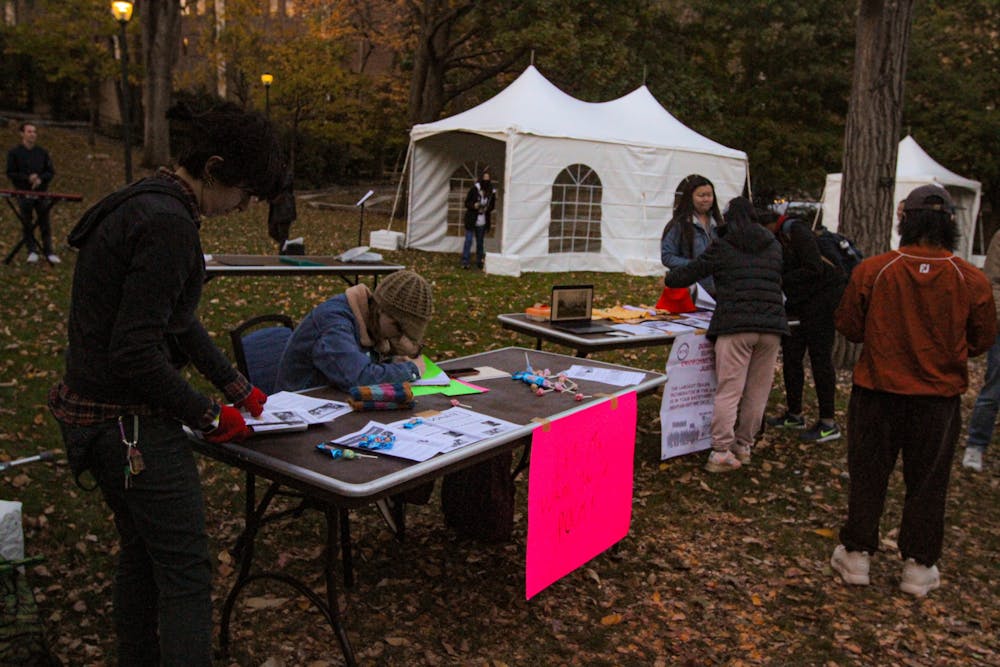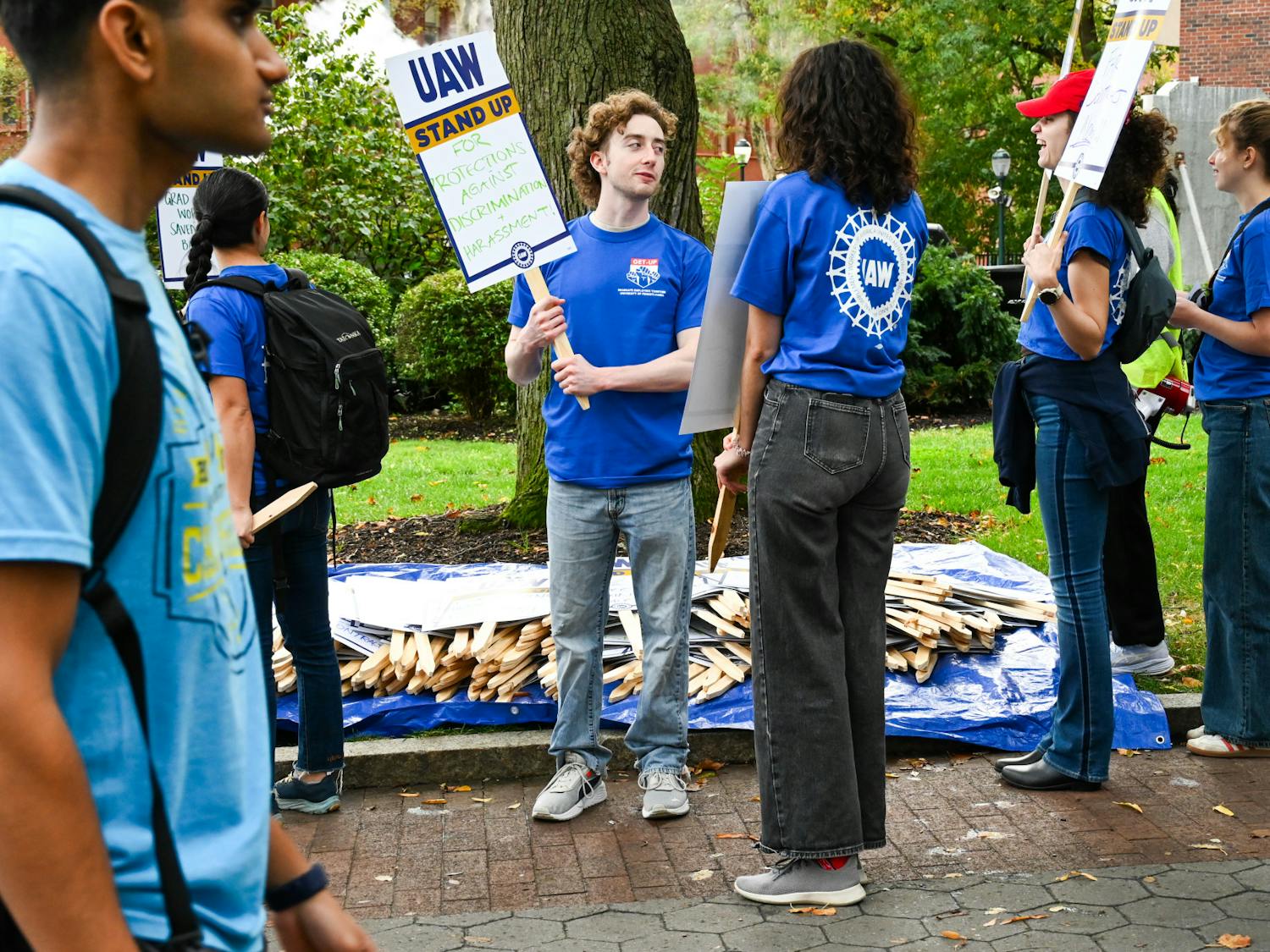Students gathered on College Green on Friday afternoon to increase awareness and fundraise to sue a trash incinerator that is releasing harmful pollutants just outside of Philadelphia.
The festival, called Ban the Burn, was organized by students from Penn and Swarthmore College who belong to C4, a college-level branch of Chester Residents Concerned for Quality Living, also known as CRCQL. The students teamed up to raise funds for a lawsuit accusing the Delaware Valley Resource Recovery Facility in Chester, Pa. of violating the Clean Air Act, which is a federal law intended to control and reduce air pollution.
Ban the Burn served as a fundraiser for Community Action Works, an organization that helps communities combat pollution. CRCQL and its C4 branches intend to work with Community Action Works to launch a legal campaign against the incinerator in Chester. The incinerator, located just 14 miles from Philadelphia, is releasing nitrogen oxides, sulfur dioxide, and small particle matter into the atmosphere, according to PBS. Exposure to these pollutants can cause respiratory issues such as bronchitis, emphysema, and asthma.
The Delaware Valley Resource Recovery Facility, which is owned by Covanta, handles trash from Philadelphia, New York, New Jersey, Delaware County, and Ocean City, Maryland. Chester has above average rates for asthma and lung and ovarian cancer, according to PBS. Almost one third of residents live below the poverty line and about 69% of residents are Black, according to Census data.
About 100 students attended the festival, which aimed to raise awareness of environmental racism and its effects in Chester. The event raised about $300 in the process, Swarthmore senior and C4 President Chantal Reyes said.
The event aimed to raise awareness of environmental racism and its effects in Chester, raising about $300 in the process, Swarthmore senior and C4 President Chantal Reyes said.
C4 members from both Swarthmore and Penn said that pollution from the Delaware Valley Resource Recovery Facility is a popular topic on Swarthmore's campus, which is located about six miles from the incinerator. The Swarthmore and Penn students connected at a CRCQL meeting, which led College junior Sheil Desai and College sophomore Alana Schreibman to start a C4 group at Penn. The two C4 groups hosted the festival at Penn to increase awareness of the incinerator on Penn’s campus and in Philadelphia.

Student artists perform at Ban the Burn festival on College Green on Nov. 5.
The festival featured musical artist VERAH, who is Swarthmore senior Veronica Yabloko, and spoken poetry by College first years Lila Dubois and Sophia Young.
Reyes said that grassroots movements such as the Black Lives Matter movement inspired the choice to include music and poetry in the festival, as it made the event arts-focused and community-oriented.
VERAH said she decided to perform at the festival to use her music to fight environmental racism in her community.
“If you want to see change, you've got to be a part of it,” VERAH said. “I love to perform, and if my performance can also help spread awareness and help deal with a really important environmental issue, that would be ideal.”
VERAH, who described her style as jazz, pop, and R&B fusion, performed six songs including “Valerie” and “Heartbreak Anniversary.”
As for what's next for C4's Penn branch, the group plans to monitor the extent of trash mixed with recycling on campus as well as campaign for Philadelphia to end its contract with Covanta, the company that owns the Delaware Valley Resource Recovery Facility.
“It does bother me knowing that a lot of the trash that we’re creating in here and Philadelphia is going there to be burned,” Desai said. “The people living in Chester are paying the consequences for our actions and that feels like a big form of injustice.”









